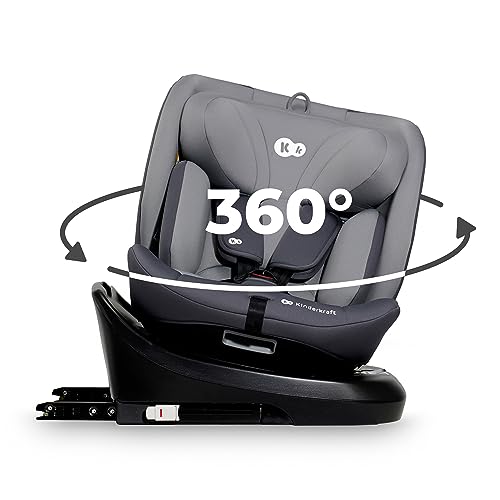How To Design And Create Successful Pram Vs Pushchair How-Tos And Tutorials To Create Successful Pram Vs Pushchair Home
Pram vs. Pushchair: Understanding the Key Differences
When it comes to transporting infants and children, moms and dads often discover themselves overwhelmed by the numerous options offered. Amongst these alternatives, prams and pushchairs are two of the most typical types of baby transport. While the terms are often utilized interchangeably, each has distinct features and benefits that cater to diverse parenting requirements. In this post, we will check out the basic distinctions in between prams and pushchairs, assisting moms and dads make notified choices about which is best matched for their household.
What is a Pram?
A pram, or perambulator, is a kind of baby carriage created primarily for newborns and infants. Prams normally feature a totally flat lying position, which is vital for newborns who need to lie flat for spinal advancement. Many prams come geared up with a deep, enclosed body that provides a relaxing and protected environment for the baby, often with additional features such as hoods or covers to shield them from the elements.
Secret Characteristics of Prams:
- Flat Lying Position: Supports healthy spinal development in newborns.
- Confined Design: Protects the baby from wind and sunshine.
- Standard Aesthetic: Often made from products like wicker or fabric, giving a traditional look.
- Weight and Bulkiness: Generally heavier and bulkier than pushchairs.
What is a Pushchair?
A pushchair, also referred to as a stroller or buggy, is developed for older babies and toddlers who can sit up unassisted. Pushchairs allow for several seating positions, consisting of reclining choices for naptime. They are usually lighter and more agile than prams, enabling parents to browse busy areas with ease. Numerous pushchairs include adjustable handles, storage compartments, and can often be folded for practical transport.
Secret Characteristics of Pushchairs:
- Seating Position: Designed for kids who can stay up, with different reclining positions.
- Lightweight and Compact: Easier to maneuver and transportation.
- Flexibility: Many designs are convertibles or can accommodate safety seat.
- Storage Features: Often include baskets for carrying diaper bags, toys, and so on.
Secret Differences Between Prams and Pushchairs
Below is a relative table highlighting the important distinctions in between prams and pushchairs.
Function
Pram
Pushchair
Target Age
Newborns to 6 months (flat position needed)
6 months to young child age (sitting unassisted)
Design
Enclosed, conventional design
Open, contemporary style
Weight
Heavier, bulkier
Lighter, more compact
Seating Options
Flat just
Multiple positions including reclining
Manoeuvrability
Less maneuverable due to weight
Highly maneuverable
Storage Space
Minimal
Generous below baskets
Picking Between a Pram and a Pushchair
Factor to consider Factors:
- Age of the Child: Choose a pram for newborns and a pushchair for older babies and young children.
- Planned Use: If you plan to do a great deal of walking or browsing city streets, consider a model that suits your way of life.
- Area: Assess the offered storage in your house or vehicle and how compactly a model can fold.
- Budget: Consider the price range, as prams and pushchairs can vary commonly in cost.
- Features: Look for additional functions that might be useful for your daily life, such as cup holders, canopies, or easy folding systems.
Advantages and Disadvantages
Benefits of Prams
- Suitable for Newborns: Encourages healthy spinal column development.
- Comfy Space: Provides a relaxing environment for infants.
Drawbacks of Prams
- Weight: Heavier and bulkier, making them less useful for daily use.
- Limited Use Time: Generally beneficial only for the very first 6 months.
Advantages of Pushchairs
- Flexibility: Suitable for longer periods as the child grows.
- Lightweight Design: Easier to bring and maneuver.
Drawbacks of Pushchairs
- Not Suitable for Newborns: Requires the child to be able to sit up unassisted.
- Less Protective: Generally more exposed than a pram.
Regularly Asked Questions (FAQs)
1. Can I use a pushchair for a newborn?
Most pushchairs are not developed for newborns; nevertheless, lots of models come with baby car seat adapters. Some pushchairs use a completely reclining seat option that may be suitable for infants, however guarantee the manufacturer validates it's safe.
2. Which is better for travel?
Pushchairs are generally chosen for travel due to their lightweight and compact nature. Read the Full Posting can typically be folded quickly for transportation on public transportation and fit more easily in vehicle trunks.
3. How long can I utilize a pram?
Prams are typically ideal for infants till they reach around 6 months of age or when they can support themselves in a seated position.
4. Exist hybrid models readily available?
Yes, many makers produce hybrid models that can be converted from a pram to a pushchair depending on the child's advancement phase.
5. What should I try to find when purchasing a pram or pushchair?
When purchasing, think about security functions, ease of use, sturdiness, weight, and storage. It's likewise recommended to evaluate numerous models for convenience before deciding.
Picking between a pram and a pushchair eventually depends upon the age of your kid and your way of life preferences. Understanding their differences assists moms and dads make informed choices that accommodate their household's requirements. Moms and dads can take pleasure in the journey of being a parent by making sure that their child's comfort and safety are constantly prioritized, while likewise considering their own convenience and design.
